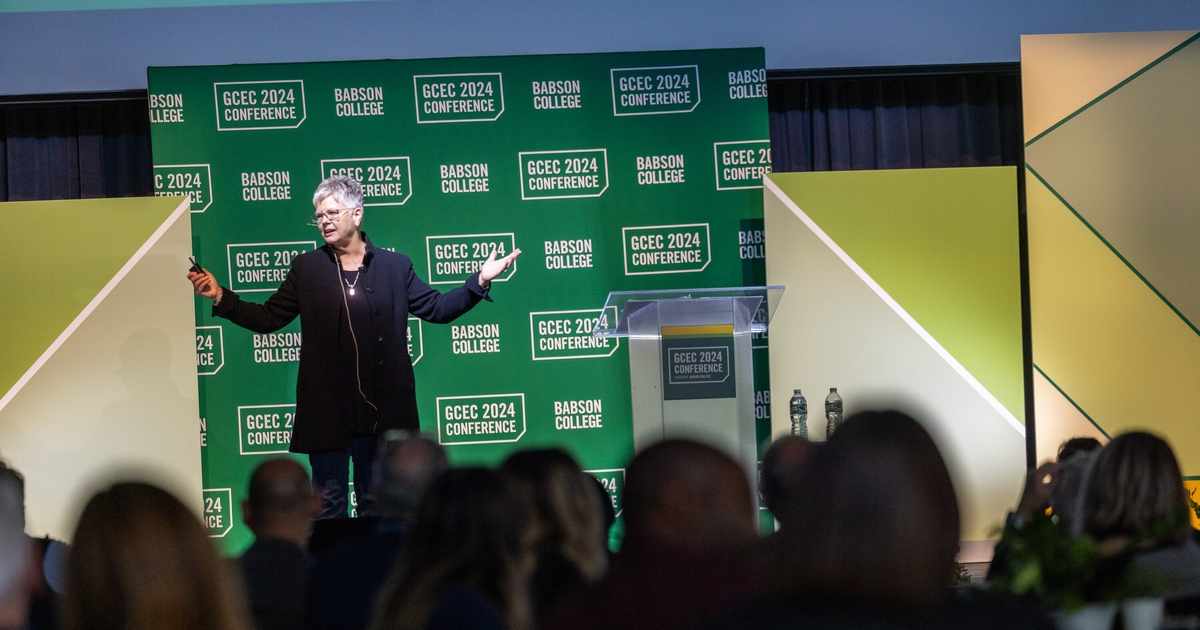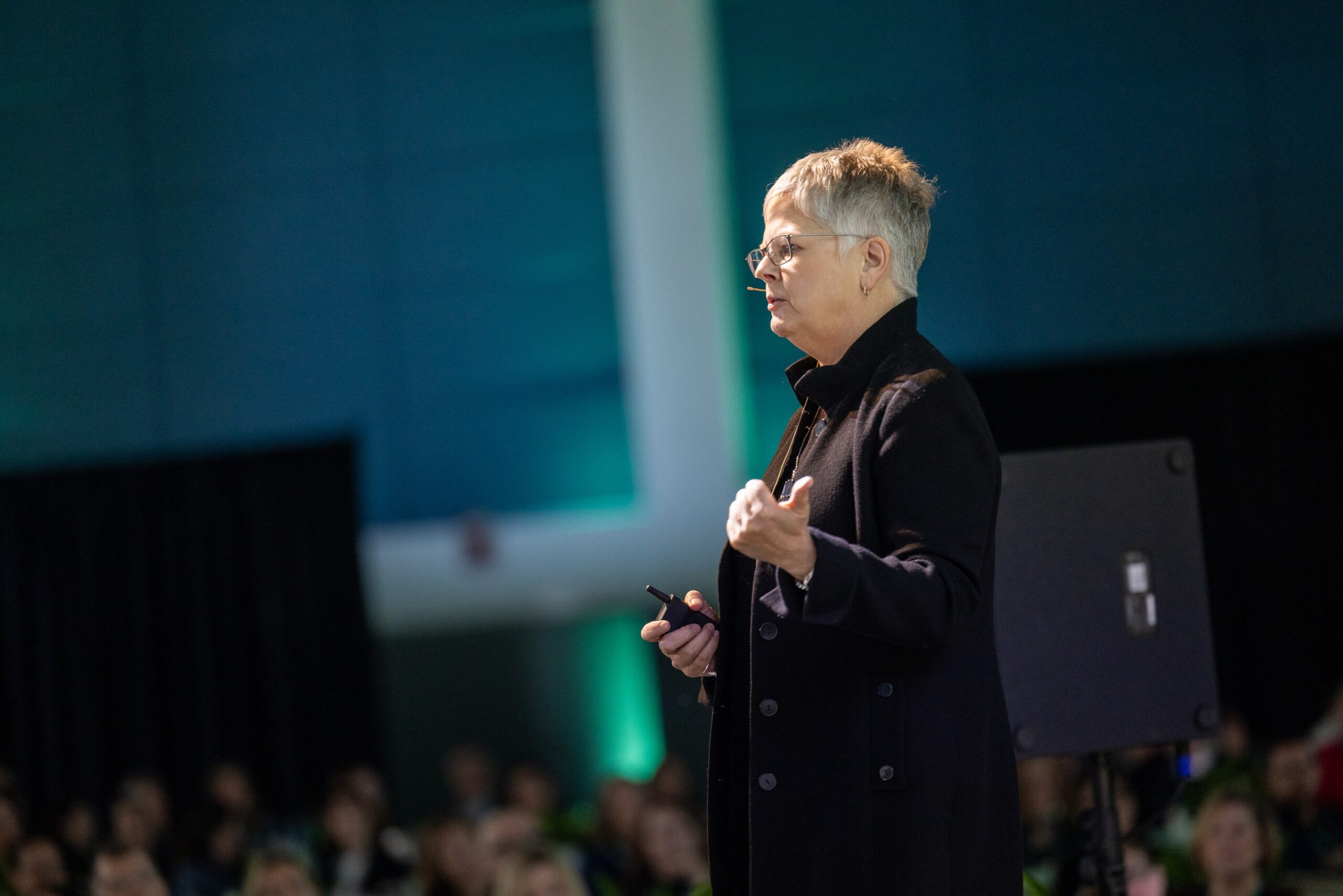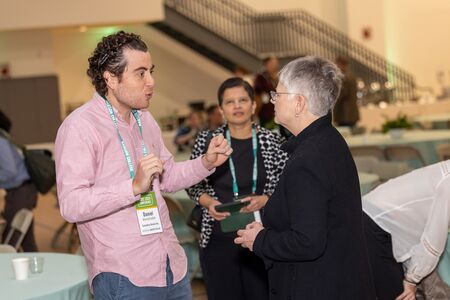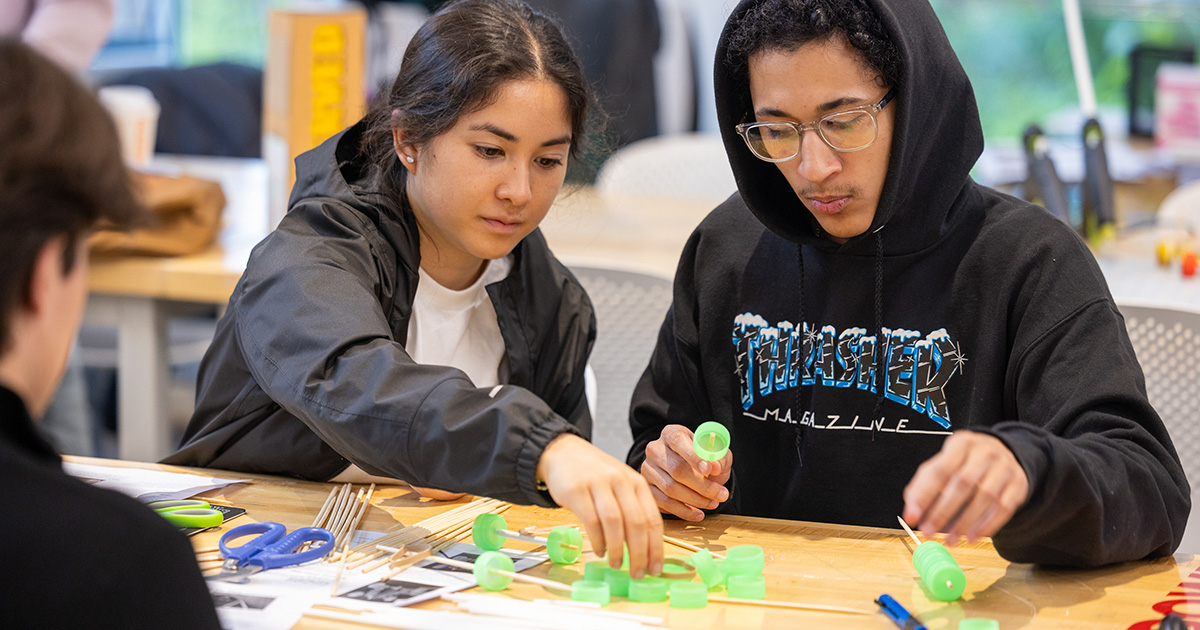Lateral Thinking and Awe Walks: Heidi Neck Shares Recipe for Entrepreneurial Growth at GCEC

Amid a hushed auditorium packed with hundreds of entrepreneurship educators, best-selling author and Babson’s Jeffry A. Timmons Professor of Entrepreneurial Studies Heidi Neck is describing the crippling shyness she experienced in early childhood.
It was so bad, she said, she couldn’t make it through a full day of pre-school before her mother was called to pick up her tearful daughter. Now an acclaimed professor and academic director of the Babson Academy, Neck said that even then, her dream was to be on stage in front of a crowd.
“So, thank you to the hundreds of people out there in the audience today. It’s taught me I need to be very specific in my goal setting,” Neck joked, kicking off her keynote address in the Len Green Recreation and Athletics Complex at the Global Consortium of Entrepreneurship Centers (GCEC) on Saturday. Hosted by the Arthur M. Blank School for Entrepreneurial Leadership, the GCEC was attended by more than 700 educators, thought leaders, and entrepreneurship center directors from around the world.
‘Grow Up Before You Scale Up’
Drawing from her own journey from that shy child to an influential educator, Neck used vivid anecdotes to illustrate her approach to elevating entrepreneurship education. “I’ve spent my career saying, ‘How we teach is just as important as what we teach.’ Content is a commodity—you can Google anything—but creating an environment where students embrace uncertainty and build confidence? That’s the magic,” she emphasized.
To create that magic, educators must prioritize personal growth in aspiring entrepreneurs.

“Before we can scale up or even start up, we need to grow up,” Neck told the crowd, challenging fellow educators to redefine growth as the development of courage, resilience, and lateral thinking—qualities she argued that are essential for entrepreneurial success.
And while students have more information and answers at their fingertips thanks to generative AI, Neck used a bittersweet rock ballad to show the importance of entrepreneurial educators. After playing a video of Stevie Nicks’ ‘Landslide,’ Neck, armed with the lyrics, began to sing a few wobbly words herself before giving up.
“I can not sing! I just can not,” she admitted. “So that’s our job. Students can search Google, they can use AI, but that doesn’t mean they know how to execute, to develop the courage to move forward and sing in public like no one is watching.”
Challenging Assumptions, Building Courage
Throughout her presentation, Neck underscored the need for experiential learning by inviting the crowd to join in exercises designed to challenge assumptions. One example, called the “Half of Thirteen” riddle, challenged the audience to find several correct answers to the question “What is half of thirteen?” Need a hint? There are seven correct answers.

Neck also suggested something she calls an “Awe Walk,” where students are asked to take a walk without their phone or other distractions. Instead, they must focus on everything happening around them. The exercises demonstrate how rejecting preconceived notions can unlock creativity and problem-solving skills in students.
“These aren’t just activities; they’re confidence-building tools,” Neck said. She recounted how her “IDEATE” class required students to generate 100 business ideas while navigating rejection and self-doubt. One student, she shared, transformed from early skeptic to the creator of the class’s best idea.
A Personal Approach to Entrepreneurship Education
Neck’s presentation also explored the psychological barriers students face, from anxiety to fear of failure. Her solution? A pedagogy steeped in empathy and personal connection. “Entrepreneurship isn’t just about starting businesses,” she said. “It’s a way of thinking, acting, and being. But that requires courage—something our students often lack when they step into our classrooms.”
Audience members, including St. Mary’s University Entrepreneurship Center Director Michael Sanderson, lauded Neck’s insights. “She breeds passion and inspiration,” Sanderson noted. “Her focus on the foundational growth of students resonates deeply.”
The Future of Entrepreneurship Education
Neck encouraged educators to rethink the metrics of success in entrepreneurship programs. While acknowledging the importance of the quantity and quality of startups, she urged a shift in focus to nurture the entrepreneurial mindset.
“Entrepreneurship isn’t just about starting businesses. It’s a way of thinking, acting, and being. But that requires courage—something our students often lack when they step into our classrooms.”
Heidi Neck, the Jeffry A. Timmons Professor of Entrepreneurial Studies
“We can’t measure mindset perfectly,” Neck admitted, “but we know it when we see it in our students—the courage to ask questions, the persistence to try, and the creativity to solve problems. That’s where real impact begins.”
Neck’s words certainly impacted Liana Gonzalez-Schulenberg, the managing director of the RED Labs accelerator at the University of Houston.
“We have such high expectations for our students, but really, they’re young, and they don’t have much real life experience. I love the idea of giving them opportunities to grow,” Gonzalez-Schulenberg said. “And, I’m stealing the ‘Awe walk’ for sure. My students will love that.”
GCEC COVERAGE: This is the second article in a two-part series examining the lessons and learnings of the GCEC conference. Read the first article, which provides sweeping coverage of the three-day event, here.




